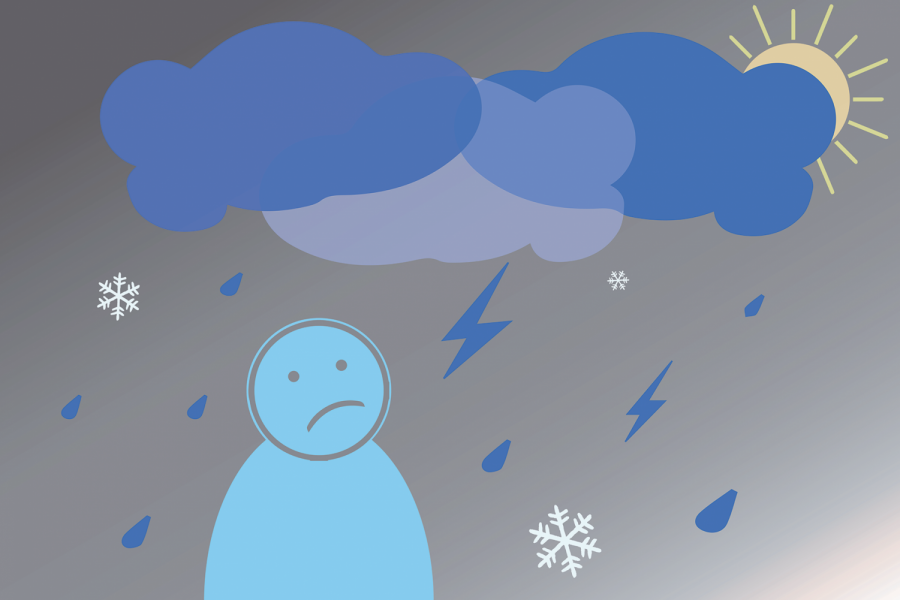Seasonal affective disorder threatens students’ already eroding mental health
Most students, whether they’re living in Evanston or not, will face darker and colder days over the next few months. This winter will be particularly difficult, as seasonal affective disorder compounds the stress of online learning and the pandemic.
November 5, 2020
As a quarter of mostly remote learning meets shorter days and colder temperatures, some students are struggling with the onset of seasonal affective disorder.
Communication sophomore Marisa Gudino moved from California to an off-campus apartment in Evanston this fall and said she’s not looking forward to the winter.
When the temperature drops, Gudino said, she anticipates spending entire days inside her apartment.
“It adds to the stress, being cooped up in an apartment, and all I can do besides class is talk with my roommate, watch TV or make food,” Gudino said. “I’ve definitely been a bit down.”
As online classes exasperate the negative effects of winter on mental health, asking for help can be difficult, according to Kumu Myla, the co-president of Northwestern’s chapter of Active Minds, a nonprofit working to raise mental health awareness among college students.
In her experience, the Weinberg senior said professors have not been receptive to giving excuses for mental health reasons.
“Physical illness is something that you can see on paper,” Myla said. “If a student comes to a professor with issues that aren’t related to their physical body, they might have to share things that they don’t want to share (about their mental health) in order to get help or an extension.”
Northwestern Memorial Hospital psychiatrist Aderonke Pederson said she hopes professors will be patient with their students as NU approaches another quarter dominated by online learning.
Not only is the weather challenging in Illinois and the Midwest, but Pederson pointed out the added potential stressors students are facing — COVID-19 and the presidential election.
“There’s this feeling among students that, ‘I’m being asked to do the same amount of work, but I am going through a very different schooling experience,’” Pederson said.
Pederson encourages students to seek help from family, friends or University resources. Counseling and Psychological Services has been offering remote services since April.
Those who have a history of mental illness should avoid going long stretches of time without consulting their therapist or psychiatrist, Pederson added. Anyone who is experiencing heightened anxiety should try to establish a reliable daily schedule with time for sleep and exercise, she said.
“Don’t let the stigma of mental illness keep you from getting the help that you need,” Pederson said. “Take it one day at a time knowing that this isn’t going on forever. Think about those things that you might be grateful for, not just the things that you’ve lost because of the pandemic.”
Furthermore, compounded with COVID-19 related deaths, seasonal affective disorder may particularly impact Black students this year, Pederson said.
Data shows that Black Americans are dying from COVID-19 at twice the rate of white Americans. Pederson said many Black families celebrating the holidays this year may have lost loved ones to COVID-19 — if they can celebrate at all under social distancing guidelines.
Black communities have also disproportionately felt the economic impact of the pandemic, Pederson said, and Black women in particular are more likely to have lost their jobs or been furloughed.
“We’re all going into the winter months having experienced the pandemic differently,” Pederson said. “We need to be patient with ourselves and patient with each other.”
Email: [email protected]
Twitter: @maiapandey
Related Stories:
— Spread across the globe, NU students struggle with their mental health during virtual learning
— Northwestern doctors face challenges in psychiatric care, anticipate mental health crisis ahead


